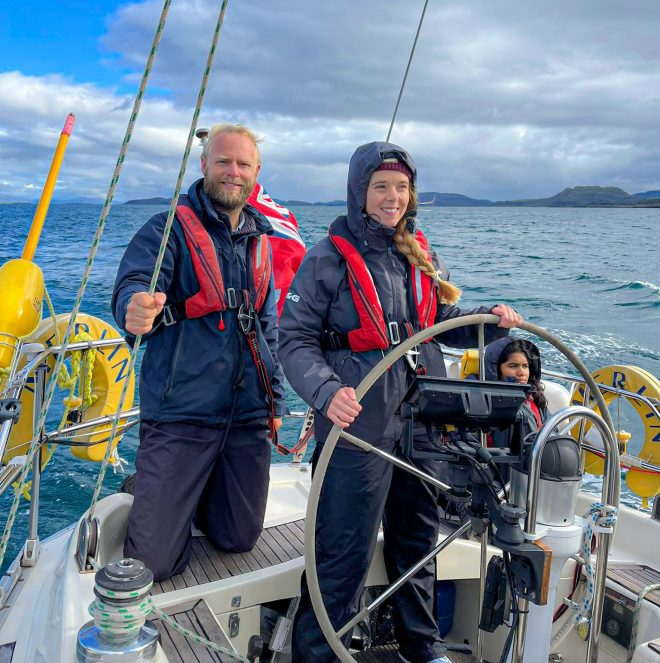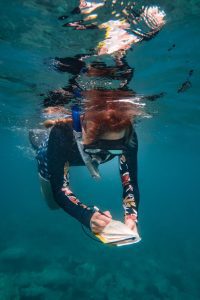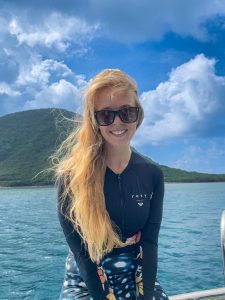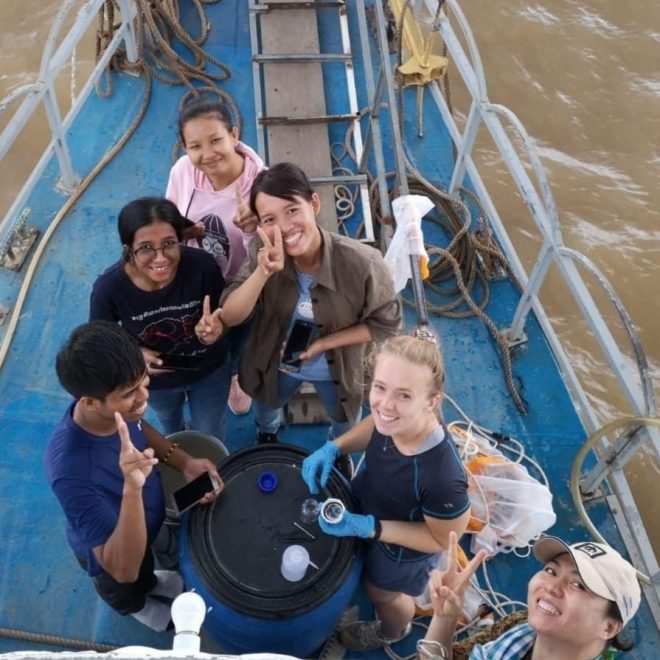Vision for the Ocean – Dr. Freija Mendrik

This blog is part of our ‘Vision for the Ocean’ series.
Launched on World Ocean Day, the series showcases inspirational stories of people and organisations who are seeking to protect the ocean and all it makes possible. We’re proud to call all these ocean lovers our friends and our partners in the fight for our blue planet.
By working together, we can achieve a thriving ocean, thriving people.
Dr. Freija Mendrik is a marine scientist and National Geographic explorer currently researching how microplastics are impacting coral reefs in Vietnam. She is passionate about protecting marine life and collaborative scientific communication and expresses her research and advocacy through art, social media and film.
What does the ocean mean to you, on a personal level?
The ocean is home. I was lucky enough to grow up on the Jurassic coast of Devon and I was obsessed with everything to do with the ocean. The ocean is our lifeline. It’s soothing to be by the ocean, but at the same time demands our respect as it is such a strong force too. What excites me so much is that there is still so much we don’t know about the ocean and so much to explore.


What work do you want to celebrate that’s moving us in this direction?
There are so many different groups working towards protecting the ocean which is so inspiring! I’ve recently been expedition leader for Sail Britain where we visited the Community of Arran Seabed Trust (COAST) and their community-led No Take Zone in Lamlash Bay, Scotland. Firstly, Sail Britain is a brilliant organisation, working to inspire positive change for the ocean, through creative and cultural exchange, education and environmental research with expeditions open to all.
It was so incredible to see the No Take Zone of COAST and all the abundant marine life in that area. It just shows the power of people when they come together and push for change.
Tell us about your work on microplastic pollution
I have recently finished my PhD on microplastics aiming to understand the complex mechanisms that impact their transport. I was also part of the National Geographic River of Plastic project which applied a physical and social approach to understand plastic waste movement in the Mekong River, SE Asia. I am now leading my own project with National Geographic and the University of Hull, investigating how corals are being impacted by microplastics for the first time on a remote island of Vietnam. Coral reefs are such important ecosystems, not only supporting a huge amount of biodiversity, but provide numerous ecosystem services such as coastal protection. We still don’t actually know where most of the plastic in the ocean is ending up, or the full ecological impact of microplastics. This work will help answer part of those questions and push for more effective mitigation against the plastic pollution crisis.

What is your vision for the ocean?
A thriving ocean is absolutely possible. One of the things that is so incredible about marine ecosystems is their ability to recover if they are left alone.
There are many examples of this all over the world. We must ensure these areas get the protection they deserve, such as through strict No Take Zones, and continue to push for change by putting pressure on our governments to ensure the policies are there for us to achieve this. I’m hoping that the demand for seafood will also lessen as more people move towards plant-based diets or at least that stricter sustainable fisheries arise.
I am also optimistic about the plastic pollution crisis. Policy implementation has been slow, but is rising and plans have been laid for a global treaty to end plastic pollution. We are moving towards a more circular economy, albeit slowly, but I believe that we will get there, so let’s keep up the pressure.
You can follow Freija’s work here: Instagram @freija.marine Twitter @FreijaMendrik Webpage Plastic-In-Vietnam-Reefs & River-of-Plastic
